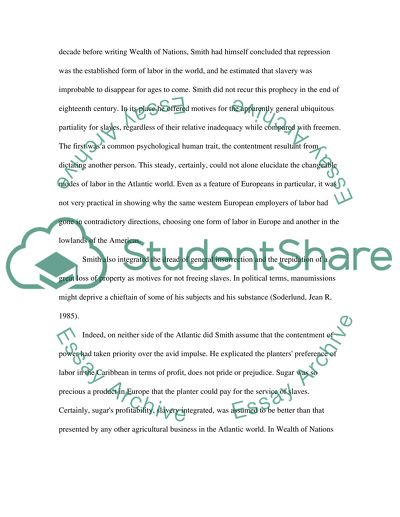Cite this document
(“Adam Smith's (positive economic) view of slavery Essay”, n.d.)
Adam Smith's (positive economic) view of slavery Essay. Retrieved from https://studentshare.org/miscellaneous/1512489-adam-smith
Adam Smith's (positive economic) view of slavery Essay. Retrieved from https://studentshare.org/miscellaneous/1512489-adam-smith
(Adam Smith'S (positive Economic) View of Slavery Essay)
Adam Smith'S (positive Economic) View of Slavery Essay. https://studentshare.org/miscellaneous/1512489-adam-smith.
Adam Smith'S (positive Economic) View of Slavery Essay. https://studentshare.org/miscellaneous/1512489-adam-smith.
“Adam Smith'S (positive Economic) View of Slavery Essay”, n.d. https://studentshare.org/miscellaneous/1512489-adam-smith.


